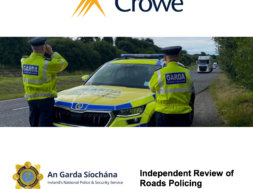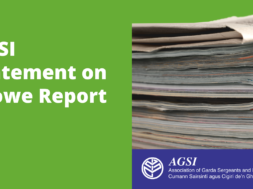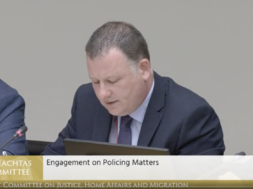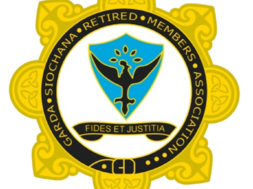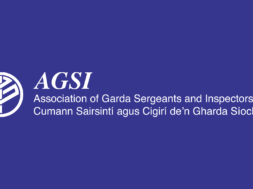
Minister announces the commencement of The Criminal Justice (Spent Convictions and Certain Disclosures) Act 2016
Minister for Justice and Equality announces the commencement of The Criminal Justice (Spent Convictions and Certain Disclosures) Act 2016 and The National Vetting Bureau (Children and Vulnerable Persons) Act 2012
29th April, 2016
The Minister for Justice and Equality, Frances Fitzgerald T.D., today announced the commencement of two Acts:
· The Criminal Justice (Spent Convictions and Certain Disclosures) Act 2016
· The National Vetting Bureau (Children and Vulnerable Persons) Act 2012
The Criminal Justice (Spent Convictions and Certain Disclosures) Act 2016 provides that a range of minor offences will become spent after seven years and it is estimated that about 85% of convictions will become spent after 7 years as a result of this Act. The Act does not apply to any conviction for a sexual offence or an offence which was tried in the Central Criminal Court.
In announcing the commencement of the two Acts, the Minister stated: “The Spent Convictions and Certain Disclosures Act 2016 is an important milestone in the rehabilitation of offenders in Ireland. This legislation brings Ireland into line with most other EU Member States in providing that people convicted of relatively minor offences can eventually leave their past behind them and get on with their lives. The Bill should be of particular benefit to ex-offenders, who often find their path to employment blocked, once they admit to a previous offence. Society’s interests and those of the offender who mends his or her ways can coincide. It is in everyone’s interest that offenders who have paid their debt to society and want to leave crime behind are encouraged to do so. Insofar as this legislation can help, then it is to be welcomed by all.”
Commenting further, Minister Fitzgerald said “I am also very pleased to announce the commencement of the National Vetting Bureau (Children and Vulnerable Persons) Act 2012. This Act is an important part of the Government’s suite of legislation to ensure that we have appropriate legal protections for children or vulnerable persons. The Act will ensure that relevant criminal convictions or other information which gives rise to concerns regarding a person working with or seeking to work with children is disclosed in the appropriate manner.”
The Act also provides for the use of soft information in regard to vetting, referred to in the Act as “specified information”. Specified information is information other than a court determined criminal conviction and the Act provides that such “specified information” is only disclosed where it raises a bona-fide concern that a person poses a threat to children or vulnerable person.
Vetting procedures are already a requirement under the Children First National Guidelines. Currently over 300,000 vetting applications are processed by the Garda Vetting Unit each year. The primary purpose of the National Vetting Bureau (Children and Vulnerable Persons) Act 2012 is to put the procedures that have been developed to vet these applications into law. More importantly, the Act now makes it mandatory for persons working with children or vulnerable adults to be vetted, whereas previously this was done on the basis of a voluntary code. The Act balances the need to protect children and vulnerable persons with the need to allow any person the right to defend their good name. It does this by setting out detailed procedures that must be followed in such disclosures and also sets out appeals procedures.
The Criminal Justice (Spent Convictions and Certain Disclosures) Act 2016 Act also included amendments to the National Vetting Bureau (Children and Vulnerable Persons) Act 2012 to provide that minor convictions will not be disclosed in Garda Vetting under that Act. However, because of the need to protect children or vulnerable persons, the non-disclosure provisions under that Act are more restrictive. It will still be the case that all offences against the person and all serious convictions will be disclosed where persons are applying to work with children or vulnerable persons.
ENDS…/
Note for Editors
The Criminal Justice (Spent Convictions and Certain Disclosures) Act 2016
In accordance with the provisions of the Act the following convictions will be spent:
· All convictions in the District Court for Motoring offences which are more than 7 years old will be spent, with the proviso that spent convictions for dangerous driving are limited to a single conviction.
· All convictions in the District Court for minor public order offences which are more than 7 years old will be spent.
· In addition, where a person has one, and only one, conviction (other than a motoring or public order offence) which resulted in a term of imprisonment of less than 12 months (or a fine) that conviction will also be spent after 7 years. This provision will apply to either a District Court or Circuit Court conviction.
The National Vetting Bureau (Children and Vulnerable Persons) Act 2012
The Act also provides for the use of soft information in regard to vetting, referred to in the Act as “specified information”. Specified information is information other than a court determined criminal conviction. For example, it may include conclusions from investigations of child abuse or neglect that have been conducted by TÚSLA or the HSE, where such investigations have concluded that a person poses a threat to children or vulnerable persons. Specified information might also include conclusions arising from fitness to practice inquiries by statutory bodies such as those conducted by the Medical Council, the Nursing Council or the Teaching Council. The Act provides that such “specified information” is only disclosed where it raises a bona-fide concern that a person poses a threat to children or vulnerable person.
The schedule to the Bill lists in detail the types of work or activities that require vetting. These include:
· Childcare services.
· Schools.
· Hospitals and health services.
· Residential services or accommodation for children or vulnerable persons.
· Treatment, therapy or counselling services for children or vulnerable persons.
· Provision of leisure, sporting or physical activities to children or vulnerable persons.
· Promotion of religious beliefs.




